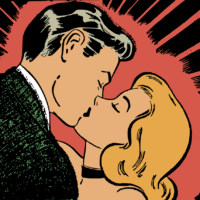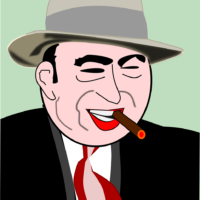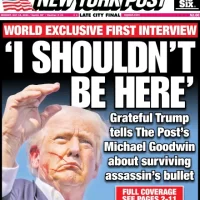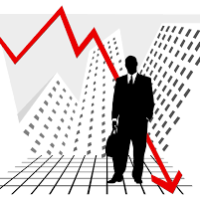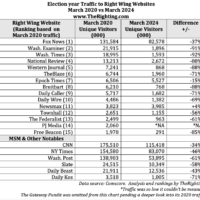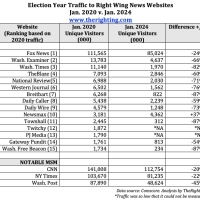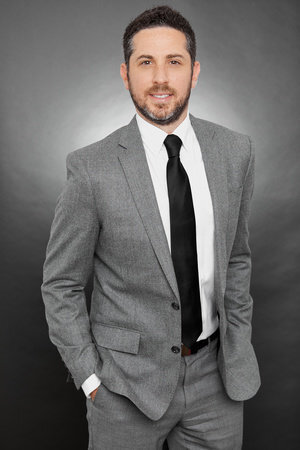
The Dotted Line from Spiro Agnew to Donald Trump:
TheRighting Interview with Michael Yarvitz, Co-Author of Best-Selling Book on Corrupt Nixon Veep
Michael Yarvitz has co-authored with Rachel Maddow perhaps the best political book in 2020 that is not focused on Donald Trump. The same could also be said about the riveting podcast hosted by the MSNBC anchor, which he produced. In both works – which are called “Bagman” – Yarvitz and Maddow dive into the seamy underbelly of Spiro Agnew’s vice presidency, a mostly misremembered chapter in presidential history overshadowed by the darker stain of President Nixon’s second term in office. Agnew resigned in disgrace in 1973 after being investigated for bribery, extortion and tax fraud. The parallels between Agnew’s pugnacious behavior and attacks on the press will surely trigger comparisons to similar conduct by Donald Trump. TheRighting’s Howard Polskin reached out to Yarvitz, a former senior producer on MSNBC’s “The Rachel Maddow Show,” to conduct this email interview.
Q. What made you want to focus a book and a podcast on the subject of a politician who slithered out of the spotlight and national consciousness nearly 50 years ago?
Our initial motivation was to try to look back at recent history in order to gain some sort of perspective and understanding about what happens when a President and a White House are facing an onslaught of serious allegations of criminal behavior. During the Trump era, the most often cited historical touchstone (understandably so) was Richard Nixon, his criminal misdeeds, and his eventual resignation from office. But there was also this largely untapped, not very well remembered crisis that was happening right in the shadow of Watergate that, it turned out, was actually a much closer parallel to what was unfolding during the Trump administration. The story of Spiro Agnew’s downfall was this incredibly dramatic event in its own right: a team of federal prosecutors, at the height of Watergate, discover that the Vice President is also an active criminal and they embark on this emergency mission to remove him from the line of succession before he’s able to ascend to the Presidency. That, on its own, is a story worth remembering! But the way that Spiro Agnew responded to the investigation into him– attacking his own Justice Department, attacking the prosecutors in very personal terms, attacking the press reporting on his crimes, riling up his base of supporters in order to survive– that made this story not only dramatic and compelling on its own, but, we thought, newly resonant and worth re-examining nearly 50 years later.
Q. Were you able to get the bulk of your research in the Before Times?
We were extremely fortunate that the research for this book was completed before the pandemic hit. The nature of reporting out a historical story like this is that it involves countless long days and nights inside libraries and archives across the country, sorting through thousands of pages of documents. That sort of work is obviously incredibly challenging to conduct at the moment. We already owed an incredible thanks to the archivists and librarians who helped us throughout our reporting process before the world changed, but those are now the same folks who are doing the incredibly difficult work of trying to ensure that this type of material remains available to journalists, researchers, and the general public in the midst of this pandemic.
Q. Do you feel the magnitude of Agnew’s crimes have faded over time?
I think undoubtedly so. There has been this interesting historical blind spot when it comes to Spiro Agnew as a political figure generally, but also a fascinating misperception that developed over the years about what Agnew actually did to get himself forced from office. Because the felony charge that he ultimately was forced to plead to was for tax evasion (rather than bribery and extortion), this vague impression developed over time that his transgressions must have boiled down to some minor misreporting on his old tax returns, and since he was next-in-line to the Presidency at the height of Watergate he had to be shown the door because we just couldn’t have a tax cheat as President-in-waiting. Even for people who lived through all of this at the time, Agnew’s misdeeds have largely been remembered as some sort of minor tax issues. But the actual details of what he did– his systematic extortion of businessmen, pocketing envelopes of cash on the grounds of the White House itself, his attempts to commandeer the federal contracting process for his own financial benefit– those things may seem relatively tame given the events that we’ve been living through, but the magnitude of his crimes are absolutely staggering when you look at it objectively. And, somehow, they barely register in the public consciousness decades later.
Q. What came first — the idea for the podcast or the idea for the book?
We actually never expected to write a book. After we released the podcast, Rachel and I continued to report out the story and it eventually became clear to both of us that there was just so much more to tell that we had either learned through our subsequent reporting or that we weren’t able to include in the podcast in the first place. So the book, in a lot of ways, picks up where the podcast left off, and it expands on the story in a variety of new directions. We were able, for example, to delve into what became of Agnew in the years after he was forced to resign (which is, itself, a wild tale); and we were also able to bring some new reporting to light on the various legal and political tentacles of the Agnew saga that remain with us today. Chief among them: the controversial Justice Department policy– born out of the Agnew crisis– that a sitting President cannot be criminally indicted. That policy, which very recently protected President Trump from criminal prosecution in the Russia investigation, is a lingering vestige of the Agnew crisis, but the details around its creation– which we lay out in the book– are rather astounding and would suggest that it’s probably past time for that particular policy to be reviewed.
Q. Who’s the hero in your tale? Attorney General Elliot Richardson? Ron Liebman? Anyone else?
So glad you asked. Because as much as this is a story of the almost unthinkable corruption of the second-highest official in the U.S. government, it is equally– if not more so– a story of the unflinching heroism displayed by the public servants who not only discovered those crimes, but endured the slings and arrows fired at them for doing their job and ultimately managed to bring a criminal Vice President to justice before he was able to ascend to the Presidency. It’s the three young federal prosecutors at the center of this story– Barney Skolink, Tim Baker, and Ron Liebman– who were all around 30 years old at the time and were just quietly working a local political bribery investigation that suddenly led them right into the White House. But it’s also the team of incredibly skilled IRS Agents, working right alongside those prosecutors, who meticulously combed through boxes and boxes of subpoenaed documents and records and eventually discovered the literal receipts to prove Agnew’s crimes. The dedication and the diligence of those non-partisan public servants, who were working in the trenches of this investigation, was matched by the real political courage that was shown by not only the Republican U.S. Attorney from Maryland who was overseeing their investigation, George Beall, but also Richard Nixon’s Attorney General Elliot Richardson, who single-handedly protected their investigation, went toe-to-toe with Agnew and his lawyers and ultimately made the high-stakes deal that forced Agnew from office before Watergate swallowed Richard Nixon whole. For as dark a tale as this is when it comes to brazen political corruption and attempts to subvert America’s institutions, there are also profiles in courage aplenty to find in here.
Q. You dedicated the book to the librarians and archivists “who saved all this stuff.” What in particular was most helpful to you and how did you come across it?
The various government archives and university libraries scattered across the country are a national treasure. Period. Full stop. Probably the most significant find for us as we reported out this story was what we discovered in the boxes and boxes of documents and files from Spiro Agnew’s archives at the University of Maryland and the papers of U.S. Attorney George Beall, which are held at Frostburg State University in Maryland. What became clear through hundreds of pages of the Vice President’s notes and daily calendars– as well as confidential memos written by George Beall– was this sprawling and very likely criminal obstruction of justice campaign that was launched by the Vice President to shut down the investigation into him. What we lay out in the book about that scheme– and who exactly took part in it– wouldn’t have been possible to uncover if not for these archives and, more importantly, the archivists and librarians who do the essential work of preserving this history.
Q. The book has been blurbed by Rod Rosenstein, Preet Bharara, Barbara McQuade and Ben Stiller. Which blurb thrilled you the most? Be honest.
Very difficult question! I’d say the one that surprised me the most was Rod Rosenstein. Given the fairly stark parallels laid out in the book between Vice President Agnew and the President whom he served under as Deputy Attorney General, I was delighted that he not only read, but enjoyed the book.
Q. How would you have answered this question if I asked you before the events of January 6 — Who’s been a bigger shame to the country? Spiro Agnew or Donald Trump?
I plead the fifth on that one! Spiro Agnew, for what it’s worth, did at least manage (along with his speechwriters) to contribute a great deal of alliterative turns-of-phrase to the political lexicon. “Nattering nabobs of negativism,” “pusillanimous pussyfooters,” “supercilious sophisticates.” So, there’s that?
Q10. OK…spill. When can we expect to see the Netflix 10-part dramatization because I want to mark my calendar?
I’m not at liberty to disclose at this moment, but I will say that if you liked the podcast, and if you enjoy the book, there may be something else in store for you on that front. Stay tuned.
Buy “Bagman” at Amazon. Download “Bagman” at Apple.
Interested in more news about right-wing websites? SUBSCRIBE to our free daily newsletter to get the latest conservative headlines pushed to your inbox.
Journalist Michael Yarvitz says that Agnew’s attacks on prosecutors and the press, as well as his skill riling up his base, made the story worth re-examining nearly 50 years later.


